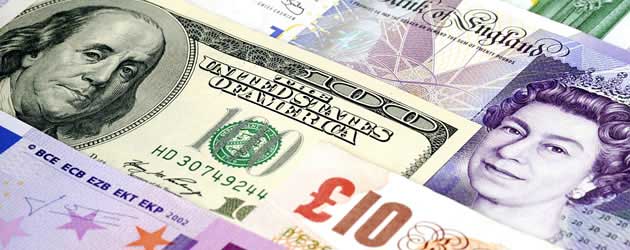
The Pound to US Dollar exchange rate declined by around half a cent cent from 1.5945 to 1.5895 last night as hawkish comments from the usually-dovish Federal Reserve Bank of Atlanta President Dennis Lockhart boosted speculation that the US Central Bank could reduce the pace of its asset purchasing scheme in December.
Lockhart told reporters that tapering “could very well take place” next month, and described quantitative easing as a “temporary fixture” that needs to be wound down eventually. The uncharacteristically hawkish comments were not in keeping with Lockhart’s decidedly dovish tendencies.
The Atlanta President is rated 2/5 on the Thomson/Reuters scale of hawkishness, putting him on par with Fed President Ben Bernanke as a tier two dove. In the past few months Lockhart has commented that he is “comfortable with the current stance of policy” and has warned that “further accommodation might be called for”. Lockhart’s atypical taper-positive comments had a heightened bullish impact on the US Dollar due to his proclivity for caution.
Sterling down on UK CPI inflation
Prior to Lockhart’s comments the Pound had already fallen by over half a cent against the US Dollar, reaching a 2-month low of 1.5854 in the process, due to a CPI inflation report from the Office for National Statistics that showed a rapid deceleration of price pressures during October.
The ONS reported that Consumer Prices fell all the way from 2.7% to a 13-month low of 2.2% last month, missing expectations of 2.5%. Influenced by lower petrol prices, softer air fares and a smaller rise in tuition fees, the weaker-than-expected CPI print dampened demand for Sterling because it was seen to ease some pressure on the Bank of England to raise interest rates.
The BoE aims to keep interest rates at the current record-low for as long as possible in the hope that this will spur lending in the real economy and help to encourage economic growth. However, the UK Central Bank is keeping a close eye on inflation and Unemployment to make sure that price pressures do not overheat too rapidly. Yesterday’s soft inflation report means that this morning’s Quarterly Inflation report may not feature a scaling forward of the Bank’s projected date for the first interest rate hike.
GBP/USD is likely to be dictated by the outcome of the BoE report: a dovish statement is likely to weaken the Pound, however, a hawkish speech could allow Sterling to claw back yesterday’s losses.
Also on the agenda is September’s Unemployment Rate, which is predicted to remain at 7.7%. This is likely to have a neutral effect on the cable pairing.

Comments are closed.